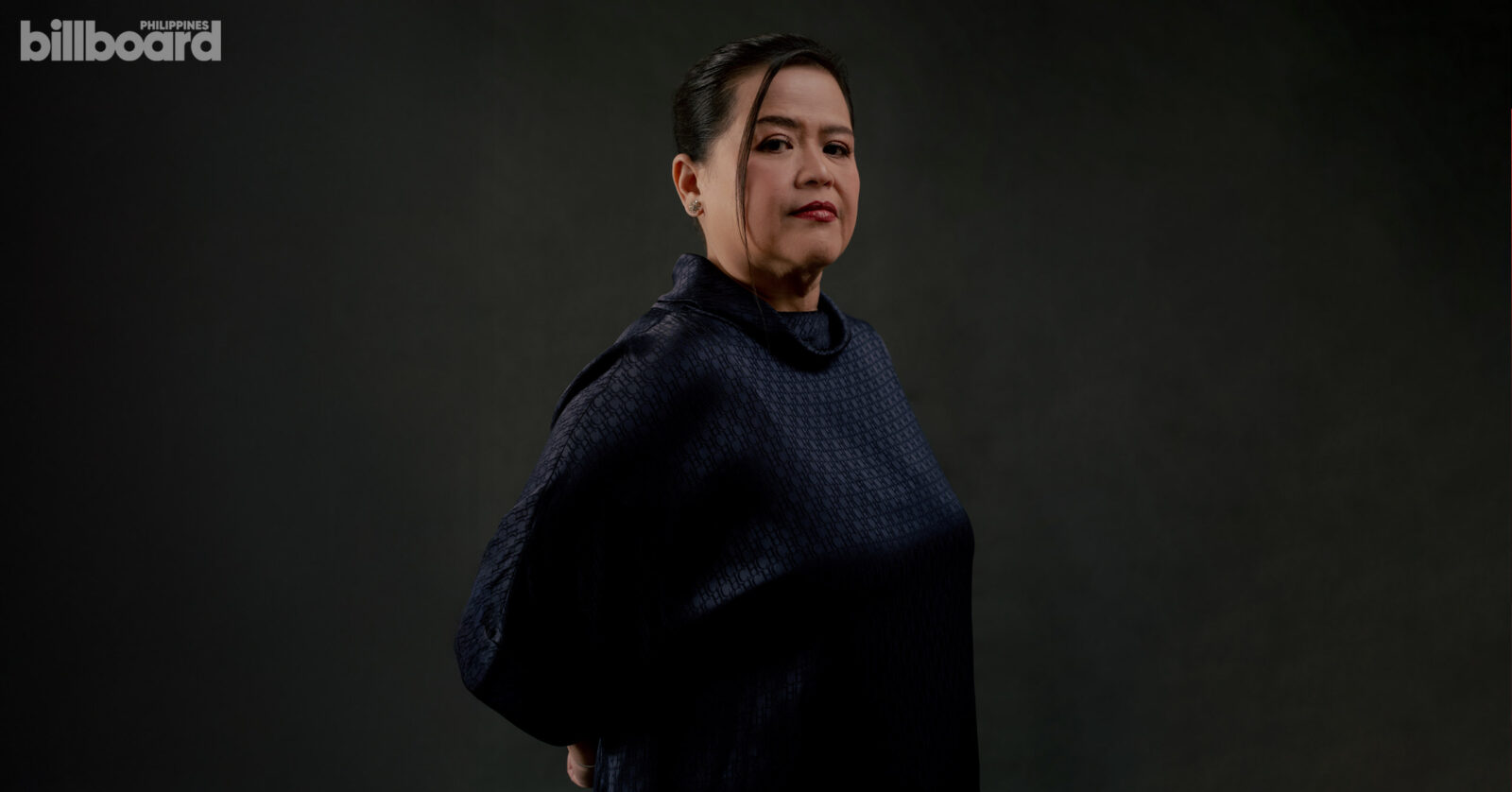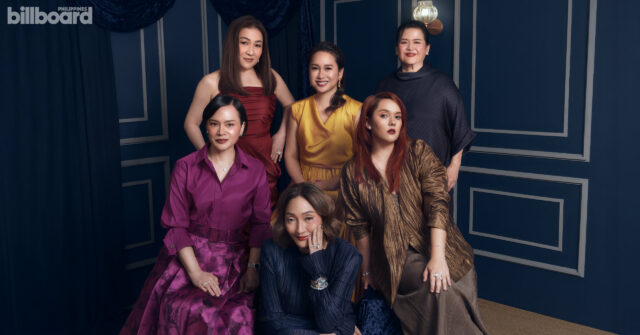As someone who has made significant strides behind the scenes, Atty. Marivic Benedicto has established herself as a transformative force in the Philippine music industry.
While she may not be a public-facing figure within the scene, Benedicto is recognized by many of the industry’s most prominent figures as one of its leading veteran legal experts. Having devoted much of her career to advocating for the rights of creators, both as an entertainment lawyer and as a champion of Original Pilipino Music (OPM), she has moved silently (yet with intention) for nearly two decades serving as the president of the Philippine Association of the Record Industry (PARI), the premier organization dedicated to ensuring fair compensation for the many individuals who make up the local music industry.
Her expertise in entertainment law is instrumental in shaping the evolution of music copyright policies in the country, and she uses her position to advocate for fairer compensation structures for composers, songwriters, performers, and even the digital platforms that distribute their music. Throughout her journey, Benedicto has continuously sought ways to empower Filipino artists, giving them the tools and knowledge they need to navigate the complex world of music rights, publishing, and global recognition — all without asking for much credit for herself.
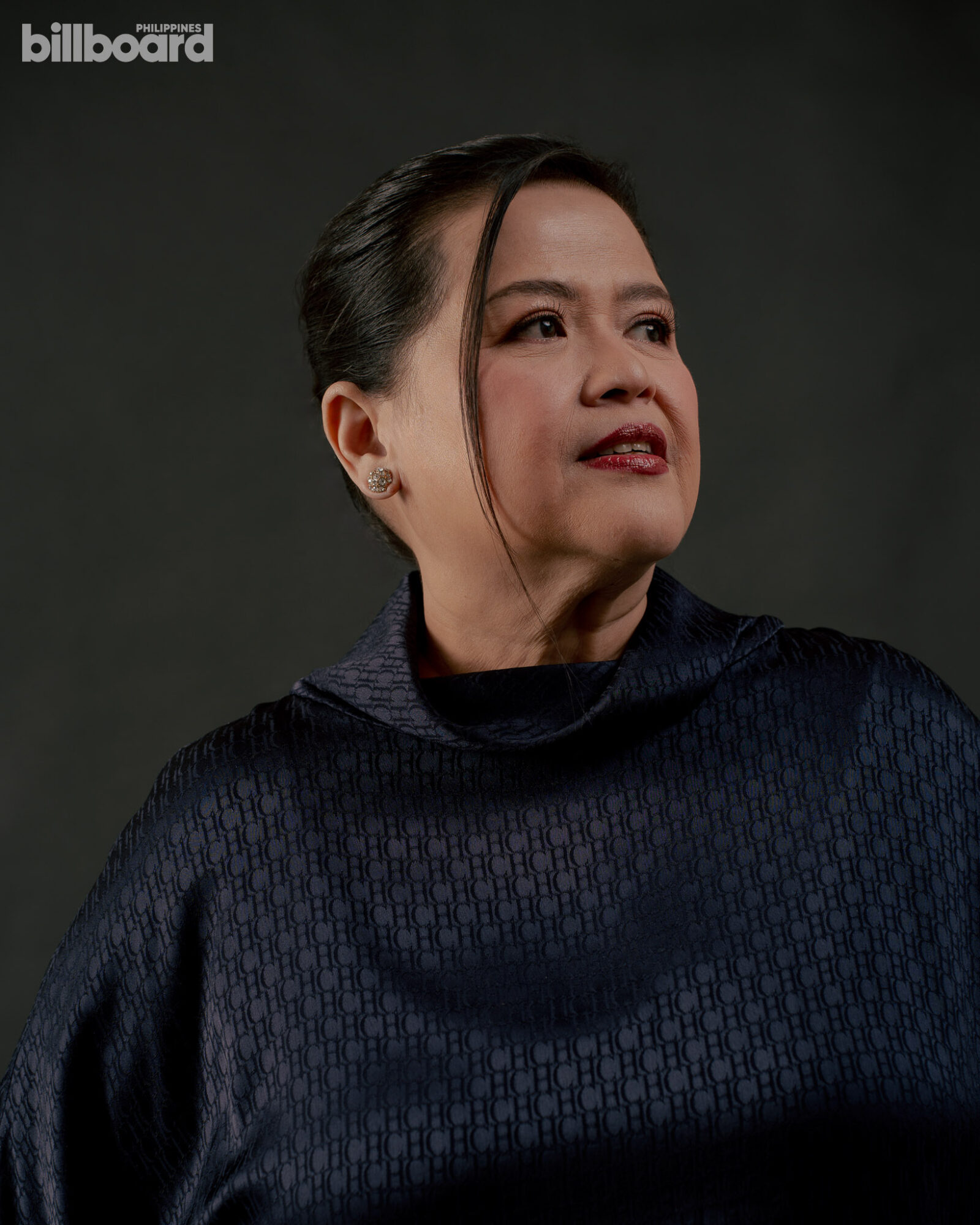
However, Benedicto’s journey into the world of music and law was anything but conventional. Originally, she aspired to be a classical singer. “In high school, when I was choosing a career, I chose [to pursue] music because I was joining contests as a singer,” she recalls. A winner of the National Music Competition for Young Artists (NAMCYA) in 1985, she went on to study music in college. Yet, as graduation loomed, she found herself at a crossroads. Despite her passion for music, Benedicto was drawn to the field of law, a path influenced by her father and grandmother, both of whom were lawyers.
Her decision to pursue law, though surprising to some, was not entirely out of the blue. “I just happened to see a sign for the Sigma Rho Fraternity’s entrance review, and out of curiosity, I took the exam,” she explains. The result was a serendipitous one: she passed, and thus began her journey in law. This fusion of law and music would become the cornerstone of her professional life. After completing her legal education at the University of the Philippines and passing the bar exam, Benedicto worked at the Supreme Court before finding her true calling in the entertainment industry.
Benedicto’s foray into the entertainment sector began almost by chance. While still a practicing lawyer by day and a classical singer in her downtime, Benedicto found herself being recruited by Viva Entertainment in 1998. At the time, Viva was looking for, as she narrates, “a lawyer with a music background,” and a friend of hers (whose wedding she sang at) soon referred her to the renowned label.
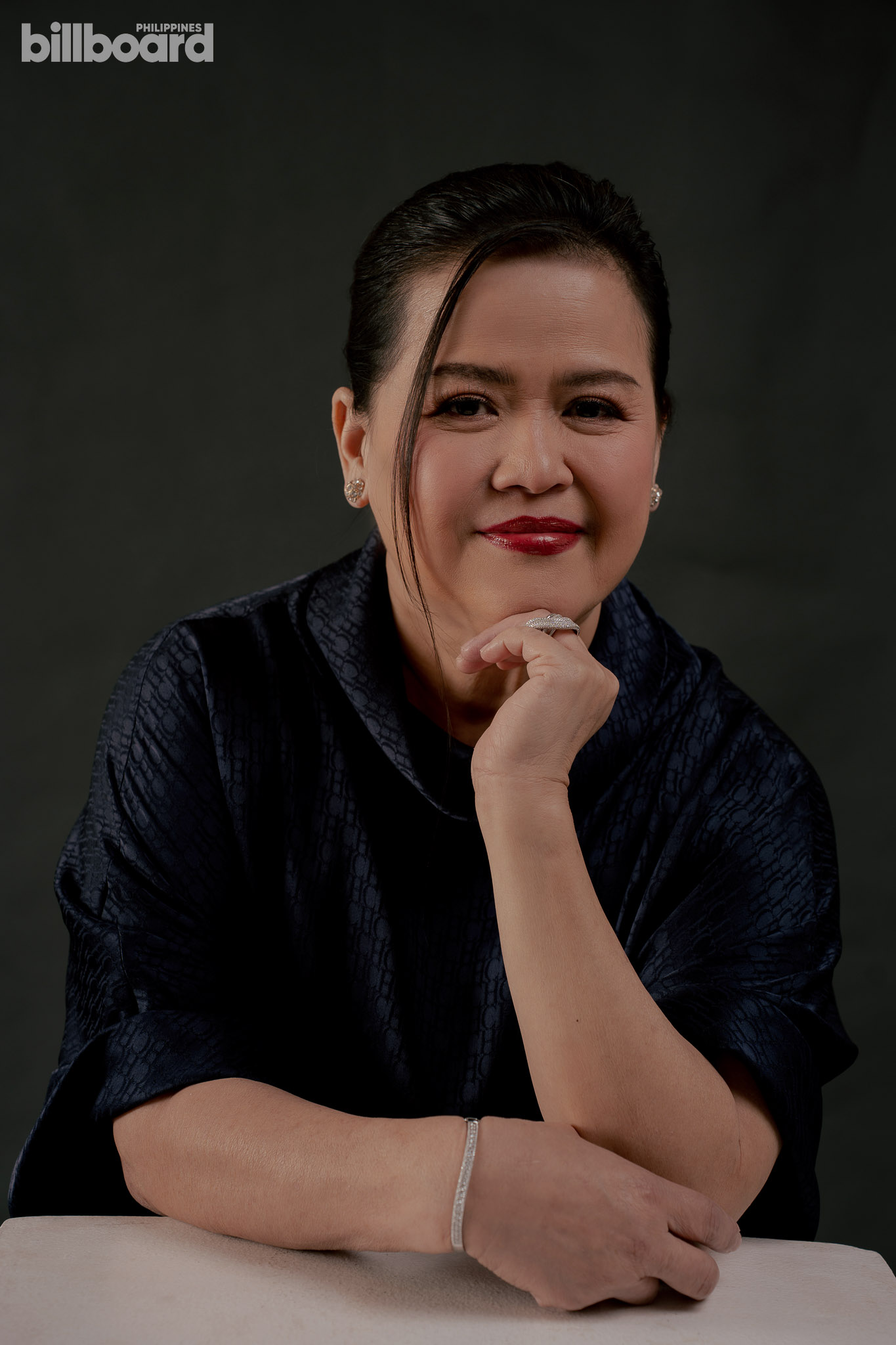
“I realized, maybe there’s a reason why I’m being led to this. That’s how I entered the entertainment industry, which was a godsend because I was able to practice both hemispheres of my brain — the creative side and the logical side. I was able to have the best of both worlds,” she mentions.
This moment marked a pivotal turning point in Benedicto’s career, as beginning in 1998, she became deeply involved in the emerging field of digital music within the major music label, from the rise of karaoke machines to polyphonic ringtones, and later the widespread use of ringback tones (RBT) in the early 2000s. Benedicto’s keen understanding of both the creative and business sides of music allowed her to navigate the complex shifts occurring in the industry during such a transformational period of music consumption. “You know, the good thing was, I was at the cusp of the digital [boom].”
Benedicto’s career then continued to evolve and blossom over time, and in 2004, she was appointed as the Executive Director of the Optical Media Board (OMB), a government agency tasked with enforcing intellectual property rights. Her work at OMB was instrumental in tackling piracy and protecting the interests of local artists, with her advocacy work earning her a seat on the board of PARI, where she represented Viva and, later, ABS-CBN, the leading media conglomerate where she would continue her work in the entertainment sector from 2011 onwards.
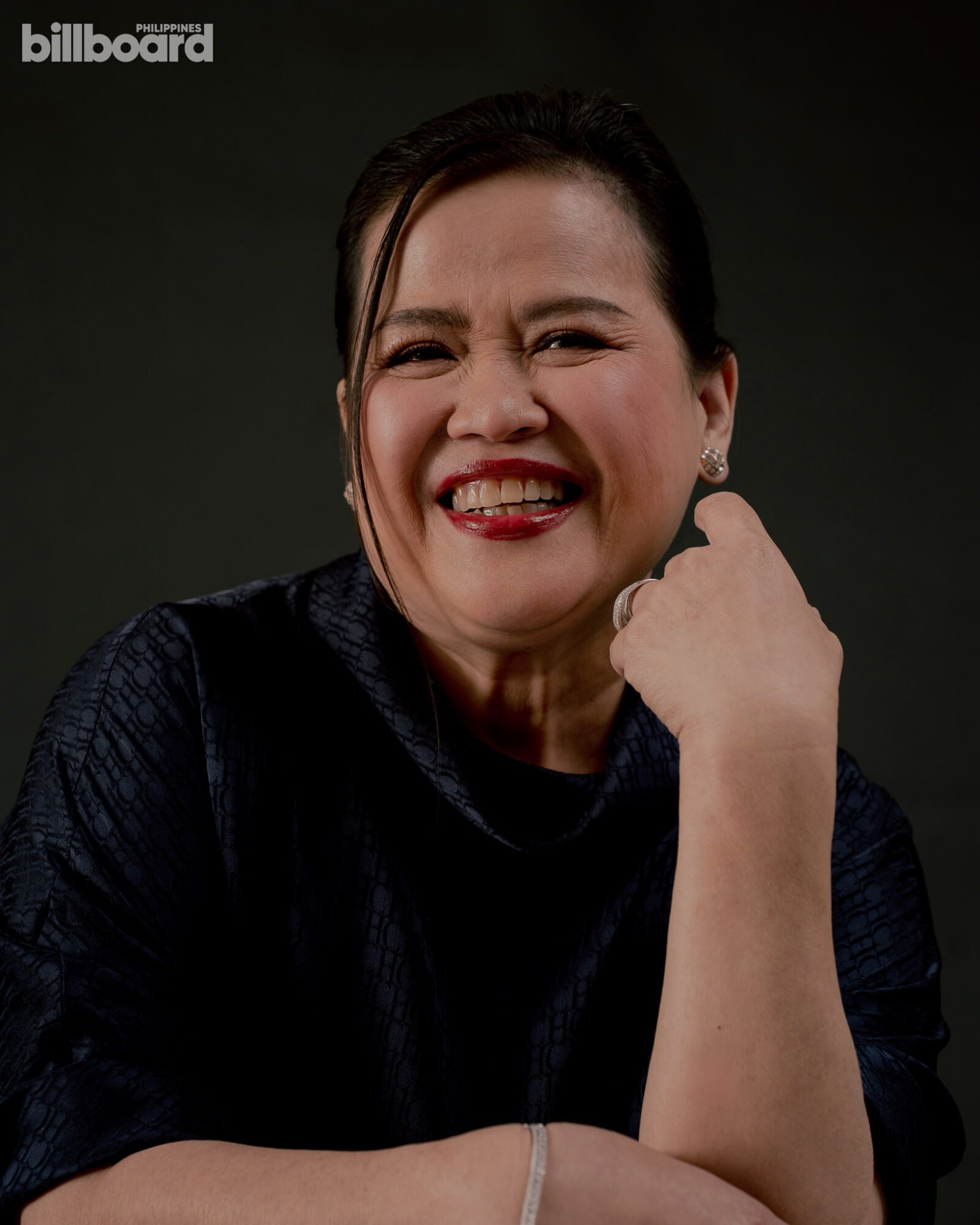
“Dati kasi ang PARI was anti-piracy talaga eh. Ngayon, ang PARI is more of the industry na siya. Parang, [it is] trying to get everyone together. I think that excites me the most, and of course, what excites me is OPM. [Before, PARI was all about anti-piracy. But now, PARI is more of an industry organization. Like it’s trying to bring everyone together. I think that excites me the most, and of course, what excites me is OPM.”] So, working for the interest of OPM, where we lobby with Congress, we work closely with IPO –– all for the interest of OPM. And what excites me [about it] is really helping OPM get to the world stage,” she continues.
With PARI’s role as both an enforcer and advocate of the Philippine music industry, Benedicto notes how one of her most ambitious goals is to ensure that Filipino music garners more global recognition. As a staunch supporter of OPM, she believes that Filipino artists have the potential to break through internationally, but she also acknowledges the hurdles.
Naming examples of OPM phenomena like SB19 and BINI, Benedicto notes how Filipino talent is close to making its big breakthrough on the international stage. Though there are still several considerations when it comes to marketing and having to adjust to a foreign audience, she envisions a future where OPM is as internationally recognized as Korean pop or other global music movements.
“It’s like Jollibee’s rise. At first, it was just the Aloha Burger. But then came Chickenjoy, and it became a standard in the fast food world,” she says. “In the same way, we need a global hit song, something like “Anak” that can resonate with audiences worldwide. Kasi bukod pa sa masarap talaga ‘yung [Chickenjoy], [because aside from how yummy the Chickenjoy is] it took everybody, not a whole village, but a universe to elevate.”
With her role as an industry advocate, Benedicto’s impact is felt across every facet of the music scene. Given the nature of her profession, she regularly engages with legislators to improve music copyright laws and ensure that local artists receive fair compensation for their work. “Artists need to be educated on the importance of registering their work with organizations like FILSCAP, so they can fully monetize their creations,” she advises.

But more than her expertise as a legal expert, Benedicto is a mentor to many, especially women in the industry. She acknowledges the growing inclusivity on her side of the industry, noting how many of them are seen as reliable in their line of work. “On the executive side, women are not a problem because we are the constant,” she mentions.
Though she still notes the presence of an unspoken bias against female creatives in the industry (especially in professions like that of recording engineers), the renowned PARI president still notes how Filipino audiences have always gravitated towards female figures and entertainers. “Siguro dahil din maternal talaga ‘yung society [in the Philippines], so mas naniwala tayo sa stability ng mga nanay,” she adds with a hint of humor. [Maybe it’s also because the Philippine is really more maternal as a society, so we believe more in the stability of motherly figures in the scene.]
Given the decorated nature of her career, Atty. Marivic Benedicto’s journey from a classical singer to one of the Philippines’ foremost entertainment law experts is a testament to her resilience, vision, and unwavering commitment to OPM. Her leadership at PARI, advocacy for copyright laws, and dedication to empowering artists ensures that Filipino music continues to evolve and thrive in the global landscape.
As the industry moves forward, Benedicto’s legacy will undoubtedly serve as a guiding force for artists, professionals, and future leaders alike, reminding them of the power of knowledge, advocacy, and passion in shaping the future of music.
“Just love OPM. That’s what I do. Do it all for that. Because if you have the power, use it to promote and to elevate OPM,” she concludes.
Photographed by Kim Santos. Art Direction by Nicole Almero. Styling by Geno Espidol of Curator Incorporated assisted by Jermainne Lagura. Make up by Mac Cosmetics. Hair by Jean Alorro of Ceestudios by Aira Castor. Produced by Mika Cruz.
On Marivic: CAROLINA HERRERA silk set. LOVE ROCKS Ring and Bracelet. LOUIS VUITTON White Mules.
